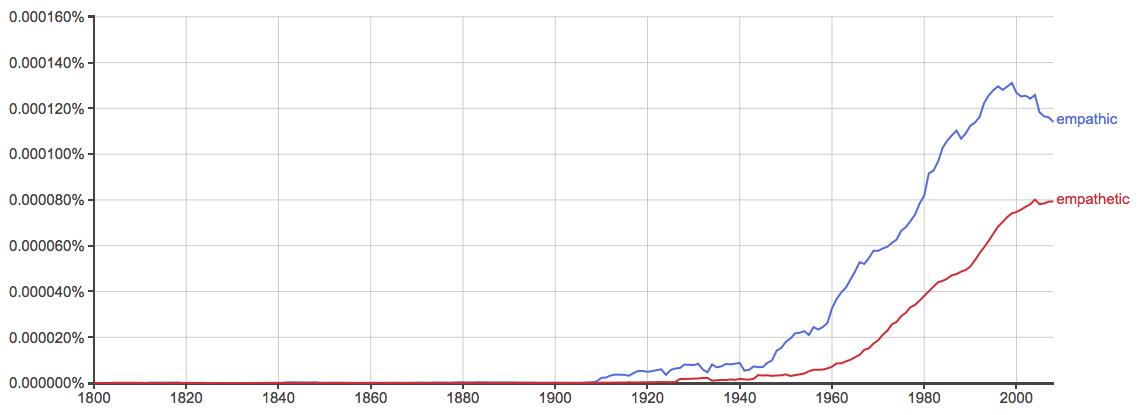The English language has evolved over the centuries. It incorporates new words, and phases old words out of common use. Variants that had previously been considered inferior rise to prominence, and come to be accepted.
Language shift can be a beautiful thing. English is constantly changing, which can make it difficult for writers who are just starting to hone their craft, and new speakers of English, to find their footing.
Empathetic and empathic, two words for the same concept, are an excellent example of this evolution. Neither was widely used until the 20th century, at which point empathic quickly became the preferred term. In recent years, empathetic has gained some standing, and may someday overtake empathic in the race for acceptance.
For now, though, empathic remains the accepted term. Continue reading to discover why.
What is the Difference Between Empathic and Empathetic?
In this article, I will compare empathic vs. empathetic. I will include example sentences containing both of these words. Plus, at the end, I will also reveal a useful trick to remember if you can’t decide whether to use empathic or empathetic in your writing.
When to Use Empathic
 What does empathic mean? Empathic is an adjective. It means having the ability to take another’s perspective. In common usage, it also usually entails a sensitivity to other people’s emotions.
What does empathic mean? Empathic is an adjective. It means having the ability to take another’s perspective. In common usage, it also usually entails a sensitivity to other people’s emotions.
For example,
- Julie is a very empathic person.
- An empathic nature may not confer an advantage in all professions.
- Typical children develop a theory of mind using skills accumulated in the first five years of life, at which point they begin to show rudimentary empathic abilities.
- But, when it came to winning rewards for others, those who were more empathic were quicker learners. –The Guardian
When to Use Empathetic
What does empathetic mean? Empathetic is a variant of empathic. It likely found popularity as an analogy to the word sympathetic. It has never been as widely used as empathy. You can see the usage of empathic vs. empathetic in the graph below.

This chart isn’t scientifically exact. It only draws from books written in English since 1800, ignoring other print sources like newspapers, journals, and other periodicals. Even so, it is still useful for identifying a long term trend. As you can see, empathic has been preferred since the early 20th century, when both of these words first gained popularity.
Trick to Remember the Difference
 Here is a helpful trick to remember empathetic vs. empathic.
Here is a helpful trick to remember empathetic vs. empathic.
For now, you should always choose empathic. Empathetic is less common, and while there may come a day when it becomes the preferred variant, this switch hasn’t happened yet. Empathic is the correct word to use in all contexts today.
Remembering to choose empathic is easy, since empathetic contains the word pathetic, and you should try not to be pathetic. This is a very blunt mnemonic. It may come across as overly harsh, but it’s also more memorable as a result.
Summary
Is it empathic or empathetic? Empathic and empathetic are adjectives, and are two words for the concept of being able to adopt another person’s perspective and emotions.
- Empathic has been, and still is, the accepted variant.
- You can remember to avoid empathetic since it contains the word pathetic, and you should try not to be pathetic in your writing.
If you need help remembering whether to choose empathetic or empathic, you can always refer back to this article for a refresher.
Contents
